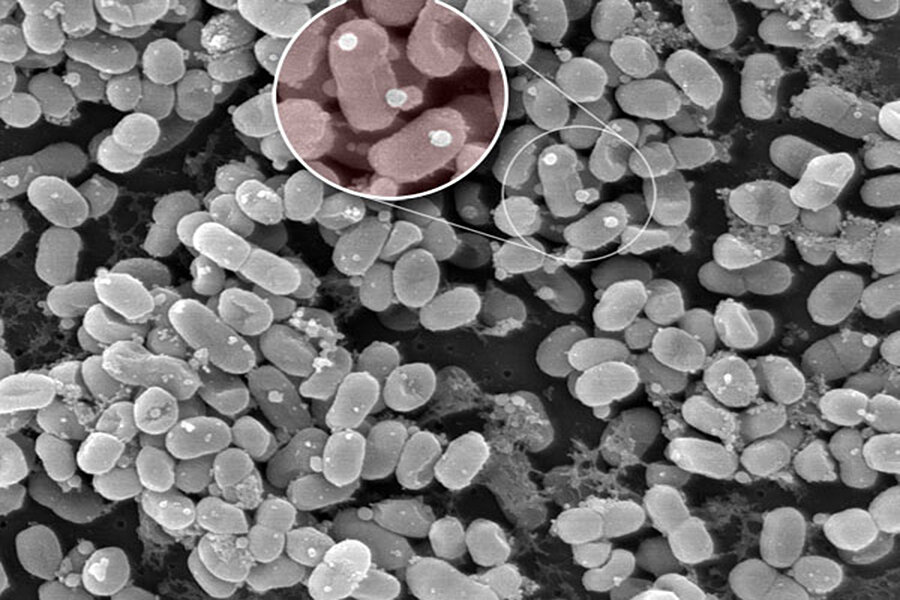Bacteria release billions and billions of 'food parcels' into oceans, say scientists
Loading...
Marine cyanobacteria, which use carbon dioxide and sunlight to produce oxygen, also help feed other marine organisms, say scientists.
Cyanobacteria, or blue green algae, are thought to be one of the first single-celled organisms to inhabit this planet.
Researchers at the Massachusetts Institute of Technology (MIT) have now discovered that these aquatic and photosynthetic organisms are also a source of food for marine organisms.
According to a paper published in the journal Science, researchers reported the "discovery of large numbers of extracellular vesicles associated with the two most abundant types of cyanobacteria, Prochlorococcus and Synechoccocus."
In other words, these tiny microorganisms, less than a thousandth of a millimeter in diameter, continually produce and release "inflated-beach-ball-like small spherical structures" into the ocean, Steven Biller, the paper's lead author, told The Monitor.
Called vesicles, these structures have a lifespan of two weeks or more and are rich in carbon and other nutrients.
The scientists compared the DNA sequence of the cyanobacteria cultured in their laboratory with the DNA of the vesicles found in the ocean and saw similarities between the two, says Dr. Biller.
Vesicles were taken from both the nutrient-rich coastal waters of New England and the nutrient-sparse waters of the Sargasso Sea. But it is surprising that these bacteria, which are out in the middle of the ocean, are releasing such vital nutrients from their body, says Biller.
"Given the dearth of nutrients in the open ocean, the daily release by an organism of a packet one-sixth the size of its own body is puzzling," said Penny Chisholm, a scientist who was part of the study, in a press release by MIT. "Prochlorococcus has lost the ability to neutralize certain chemicals and depends on nonphotosynthetic bacteria to break down chemicals that would otherwise act as toxins. It's possible the vesicle 'snack packets' help make this relationship mutually beneficial," she added.
Vesicles outside a cell were discovered in 1967, but this is the first evidence of their existence in the ocean.
"The finding that vesicles are so abundant in the oceans really expands the context in which we need to understand these structures," said Biller. "Vesicles are a previously unrecognized and unexplored component of the dissolved organic carbon in marine ecosystems, and they could prove to be an important vehicle for genetic and biogeochemical exchange in the oceans."








